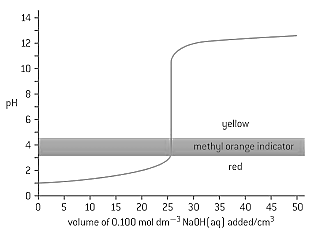Sergey Bylikin, Gary Horner and, Brian Murphy Solutions for Chapter: Acids and Bases (AHL), Exercise 2: Questions
Sergey Bylikin Chemistry Solutions for Exercise - Sergey Bylikin, Gary Horner and, Brian Murphy Solutions for Chapter: Acids and Bases (AHL), Exercise 2: Questions
Attempt the practice questions on Chapter 18: Acids and Bases (AHL), Exercise 2: Questions with hints and solutions to strengthen your understanding. Oxford IB Diploma Programme Chemistry Course Companion solutions are prepared by Experienced Embibe Experts.
Questions from Sergey Bylikin, Gary Horner and, Brian Murphy Solutions for Chapter: Acids and Bases (AHL), Exercise 2: Questions with Hints & Solutions
Distinguish between the terms strong and weak acid and state the equations used to show the dissociation of acids and in aqueous solution.
Ammonia can be converted into nitric acid, , and hydrocyanic acid, . The of hydrocyanic acid is .
Deduce the expression for the ionization constant, , of hydrocyanic acid and calculate its value from the value given.
Ammonia can be converted into nitric acid, , and hydrocyanic acid, . The of hydrocyanic acid is .
Calculate the and the of an aqueous solution of hydrocyanic acid of concentration . State one assumption made in arriving at your answer.
of ammonia, , was dissolved in water to make of solution. This solution has a hydroxide ion concentration of . Determine the of the solution.
of ammonia, , was dissolved in water to make of solution. This solution has a hydroxide ion concentration of . Calculate the base dissociation constant, , for ammonia.
Consider an acid–base indicator solution.
What is the effect on this acid–base indicator when sodium hydroxide solution is added to it?
Which indicator would be the most appropriate for titrating aqueous ethylamine, , with nitric acid, ?
The graph below shows the titration curve of of of hydrochloric acid with sodium hydroxide, of concentration. The indicator methyl orange was used to determine the equivalence point. Methyl orange has a pH range of .

If the hydrochloric acid was replaced by ethanoic acid of the same volume and concentration, which property of the titration would remain the same?
